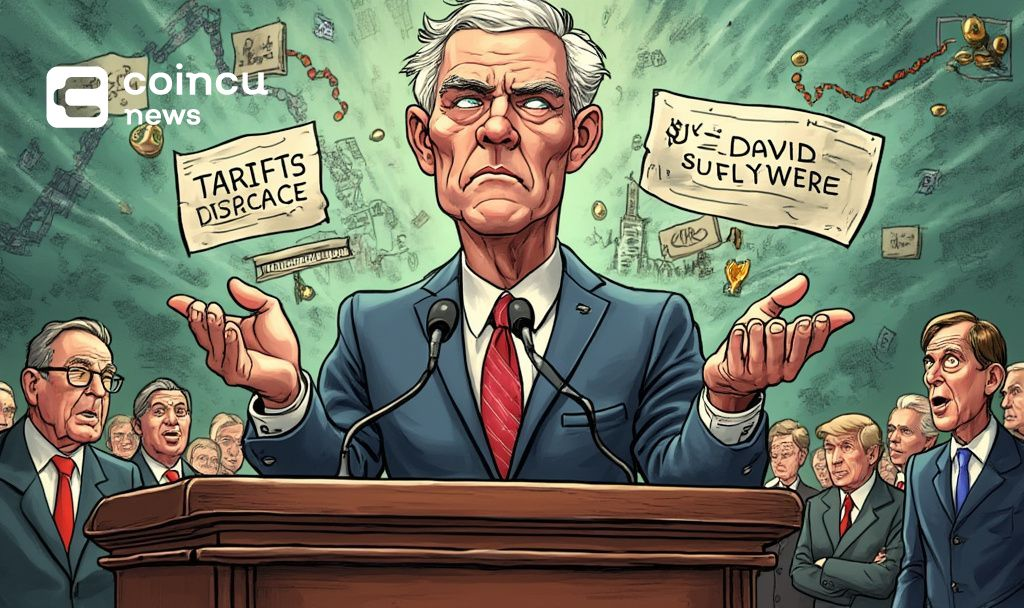- The Federal Reserve faces unexpected tariff impacts on inflation and growth.
- Chairman Powell prioritizes stable inflation expectations.
- Treasuries face increased volatility amid fiscal uncertainty.

Federal Reserve Chairman Jerome Powell emphasized concerns regarding unexpected tariff impacts during a recent press conference in Washington D.C. Powell highlighted the potential for heightened inflation and slowed economic growth due to larger-than-predicted tariff increases. As noted in the Federal Reserve’s press conference, the central bank is committed to maintaining a stable economy regulated through monetary policy.
The economic implications suggest a notable deterioration in price stability and economic forecasting, as evident from market responses and official statements. The Federal Reserve’s action seeks to prevent temporary inflation surges from evolving into ongoing issues, promising vigilance against unanchored inflation expectations.
Unforeseen Tariff Hikes Pressure Inflation and Growth
Chairman Powell’s recent remarks highlighted the unanticipated magnitude of tariff increases and their economic implications. The tariffs, which surpassed optimistic predictions, are linked to higher inflation risks and diminished growth projections. Powell stressed that “Our obligation is to keep longer-term inflation expectations well anchored…”
Economic implications of the tariffs include immediate upward pressure on consumer and producer costs. This dynamic has resulted in inflation forecasts rising temporarily, with potential for longer durations if expectations remain unchecked. Financial markets have adjusted, showing resistance to imminent rate cuts anticipated by some market actors. The U.S. Treasury’s recent announcements underscore the broader economic strategies being employed to manage these impacts.
Financial Market Turbulence Amid Tariff Concerns
Market Reactions include heightened volatility in dollar-denominated and U.S. Treasuries as market participants recalibrate policies due to persistent inflation concerns. President Donald Trump expressed dissatisfaction via Truth Social, urging a rate cut, while Boston Fed President Susan Collins stressed the potential broad tariff impact on economic sectors beyond initial evaluations.
Historical Context, Price Data, and Expert Analysis
Did you know? In prior tariff-driven inflation scenarios, such as the 2018 U.S.–China trade conflict, short-term price hikes did not disrupt long-term inflation, courtesy of central bank credibility.
Historically, similar tariff incidents have resulted in short-lived price level changes without deep-rooted inflation if central bank strategies effectively anchored expectations. Unlike past tariff issues, the current scale may necessitate vigilant management to avert prolonged inflationary pressures if expectations de-anchor.
Professional insights suggest that vigilance over inflation expectations is essential. The past underpins the need for central banks to anchor long-term expectations tightly, with lessons learned dictating current economic narratives. Federal Reserve projections currently adjust inflation goals slightly upwards, pending the tariff’s wider economic impact on market stability and growth projections.
Source: https://coincu.com/332586-federal-reserve-inflation-tariff-impact/